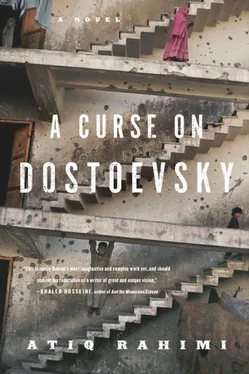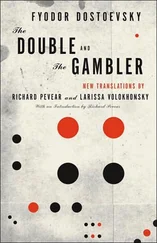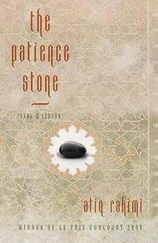Silence.
A gloomy silence that Rostam tries to break by offering a cigarette to Rassoul—who refuses—and then to Razmodin; after that he continues with his speech: “Of course, your dear mother told me that she had informed you of these regrettable events by post… but I can see that her letter has not reached you…” The commandant is made even more uncomfortable by Rassoul nodding his head and scrunching his eyebrows to convey that he certainly did receive the letter. Rostam looks on helplessly as Rassoul starts rummaging through his books to find his mother’s letter and wave it under the dazed eyes of his guests; then he returns to his spot and nonchalantly picks up a plastic swatter to chase away the flies swarming around the tray of kishmish-panir .
“You did receive it, then?” asks the commandant.
Yes.
“But… your respected mother believes you are not aware of your father’s martyrdom! Ever since she sent you that letter she has been waiting for you to arrive.”
Rassoul stares reproachfully at Razmodin, who keeps his eyes down, fixed on the tips of his nails as he waits fearfully for his cousin to say: “My father had little importance to me, alive or dead.” It seems Razmodin has not discussed it with Rostam. But why not? He should have!
Rassoul brings down the swatter on a fly that had landed on the floor in front of him, and flicks the corpse toward the door. Rostam gets the message; he is furious, and can barely contain himself: “You know quite well that for a young Afghan Muslim, duty toward one’s parents is the most important of all values. The blood of a father is priceless. We were all expecting you to swear to avenge him.” He is interrupted by the swatter coming down on another fly. He turns toward Razmodin, exasperated: “Do you know how greatly this young man’s mother and sister will suffer if they hear how he is behaving toward them and the late Ibrahim?” Razmodin nods, while imagining what Rassoul must be thinking: “No, they are probably relieved at my father’s death.”
Rostam is more and more frustrated by Rassoul’s silence. He takes a long drag on his cigarette and waits. In vain. He becomes impatient. “Say something, in the name of Allah!” Rassoul lets go of the swatter and stares at him imperiously for a long moment. Razmodin knows exactly what is seething inside Rassoul, but can’t understand why his cousin remains silent. Out of respect? That would be most unlike him. He must be weighing his words—the better to insult, as usual, all those who in the name of tradition, honor, and religion encourage people to kill each other, avenge themselves, and thus feed the ongoing war… “Do you know who killed your father?” Rassoul shrugs; he doesn’t care. “It was a thief, a crook, and he killed him for money… for money!” So it was someone who was hungry. There’s no point taking revenge on a starving individual. As a communist, my father used to say he fought for justice on behalf of the hungry; he killed the rich to save the poor, didn’t he? His soul must be rejoicing to see a few starving people feeding their bellies on his resources!
Razmodin is terrified by the mere thought of what is churning around in Rassoul’s mind. And yet he’s astonished, no, not astonished, relieved, to see him remaining quiet. Better take advantage. So he turns to Rostam to apologize on Rassoul’s behalf: “My cousin hasn’t been well these past few days…,” but is interrupted by Rassoul suddenly standing up, putting Rostam’s shoes outside the door, and signaling him to leave.
Rostam is beside himself; he leaps to his feet, yelling: “What a beadab boy! So ungrateful!” Then he says to Razmodin: “If it weren’t for respect for his mother and sister, I’d have kicked his guts in right there and then!” He spits on the floor at Rassoul’s feet. But before Rassoul can react, Razmodin maneuvers Rostam out of the door.
Rassoul closes it behind them and stands in the middle of his room, listening to his cousin running after the commandant: “Please don’t be angry, and don’t take it to heart. He is sick, I promise. He’s been acting strange ever since his father died. All month people have been complaining about him…” As they disappear down the lane, his voice fades away.
Emptied of his rage, Rassoul sits down with a triumphant smile. He picks up the swatter and looks around for another victim. No sooner does a fly land on his mattress than it is destroyed and flicked over to the door.
Now that he is calm, he picks up his mother’s letter and reads it from beginning to end. Thank God she doesn’t have fancy handwriting or a way of stretching things out to ten pages like Raskolnikov’s mother! Her letter is short, badly written, and almost illegible.
He rereads the sentences concerning his sister Donia. There is a rich and powerful man asking for your sister’s hand… But who? Why does his mother not mention his name? Rich and powerful must mean that he is not unknown. It must be someone controversial, with a bad reputation. That’s why his mother doesn’t want him to know who she is talking about.
His eyes stray over the letter, trying to avoid the words he doesn’t want to read. But here they are, more legible than the rest: “Donia is in agreement. But first she wants your approval. You are now the man of the house… ” He folds the letter. The man of the house . The first time he read it, that sentence filled him with pride— the man of the house —but now he sees that it conceals another, almost offensive, message. Each word has a new color, a new sound. They are no longer naïve and innocent. They emanate irony, reproach, and hidden meanings.
The man of the house!
No, your mother could never write a letter like that. It is you who has taken it badly. Read it again another day, and you’ll see that it contains nothing but wisdom and kindness.
He folds the letter to slip it into a book. But not just any book. One of the volumes of Crime and Punishment , of course! And worse still: at the very page where Raskolnikov reads his mother’s letter.
This is too much, Rassoul!
He hasn’t yet put the book back in its place when the door bursts open and Razmodin’s voice fills the room: “Are you on a death mission, or what? Do you want to be hit by a stray bullet? What the hell do you want? You really must be sick.” Rassoul looks at him, wondering whether to give him his mother’s letter. “Why did you behave like such an idiot? Do you know that he’s taken my aunt and Donia under his own roof, so as not to leave them alone? He came all this way to reassure you and give you money. Here!” He takes a wad of notes from his pocket and flings it onto the mattress. “Not only did you not thank him, you didn’t even speak to him! Why?” Shaken, Rassoul opens the book, takes out the letter and gives it to Razmodin. Read! And he reads it. Each word drains him, drives his head deeper into his shoulders, makes his hand tremble. Now let him understand what this cash is all about! That’s right, this generosity and kindness aren’t to please Rassoul. Rostam intends to buy Donia with this money. Donia, your cousin. The woman you love and want to marry. “Was that the ‘good news’ the son of a bitch wanted to tell you, then?” asks Razmodin hopelessly. That’s why Rassoul treated him so rudely—to stop him announcing his news in front of you. “Donia!” exclaims Razmodin. He seizes Rassoul by the shoulders, and asks him dully: “But… but why didn’t you tell me?” Rassoul shakes himself free. “If you had told me, I would have gone to Mazar, and taken you with me…” Well, go there now, and leave Rassoul in peace. “I’m taking you with me.” Rassoul can’t go anywhere anymore. Go, Razmodin, and bring his mother and Donia back to Kabul!
Читать дальше












